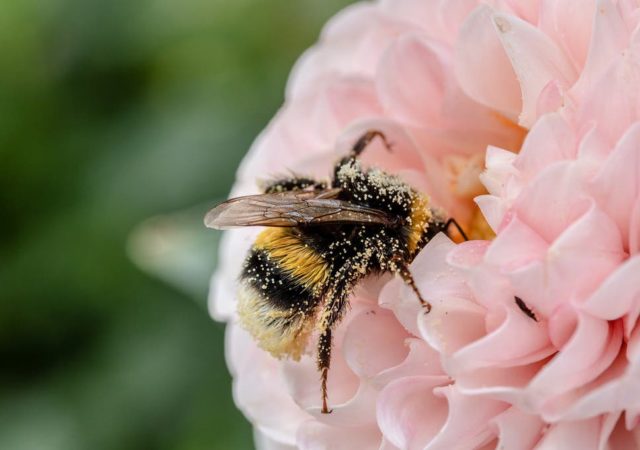
For five years, the San Carlos Forest Development Commission (Codeforsa) has promoted the planting of flowering trees. Now the Codeforsa initiative has taken off and they are promoting the campaign “Costa Rica en Flor” (Costa Rica Flowering), which consists of giving scenic beauty to the Canton and supporting endangered bees to continue their work, of producing honey and spreading pollen.
Currently, there are present 20 species of trees that flourish; among them is the yellow bark, purple, gallinazo, botarrama, tallow, almond, and ash. The nursery is located one kilometer north of the San José de Aguas Zarcas School. If you like acquiring a tree, the cost is ₡ 300 and ₡ 1,000 for fruit trees, said Jonny Méndez Gamboa, director of Codeforsa.
Another project Codeforsa works on is planting flower bushes on the Vuelta Cooper-Bajos road in Chilamate. “We want to give color to the roads,” said Méndez. He added that they are working on the permits with the National Council of Roads and Coopelesca. The National Emergency by COVID-19 does not stop Codeforsa, on the contrary, they are working on projects that bring beauty to San Carlos.
Imagine a day without fruit or vegetables. No orange juice for breakfast. No honey for your pancakes nor strawberries to top them. No tomatoes for a salad or sandwiches. Neither peppers nor onions to flavor up the steak or the quiche.
That will be our fate if agricultural practices continue to use toxic insecticides, and especially when huge fields of monocultures such as pineapples are sprayed by planes using neonicotinoids. These sprays may kill off those pesky worms and bugs, but they are also eliminating the very creatures necessary for pollinating our food crops and flowers. Bees.
According to a report in Semanario Universidad, there are 650 species of bees in Costa Rica, but all are endangered by the powerful insecticides neonicotinoids used to protect the fruit from fruitflies and insects but which are highly dangerous to bees. These pesticides are systemic and affect the central nervous system. In some bee populations, it causes a loss of memory important to bees finding their way back to the hive.


You have a beautiful country that we love to visit. Keep on striving for the clean living and eco friendly relationship with business.
Like!! Really appreciate you sharing this blog post.Really thank you! Keep writing.
Oh thanks for your comment, Pete!!!
That’s cool, thank you for your comment